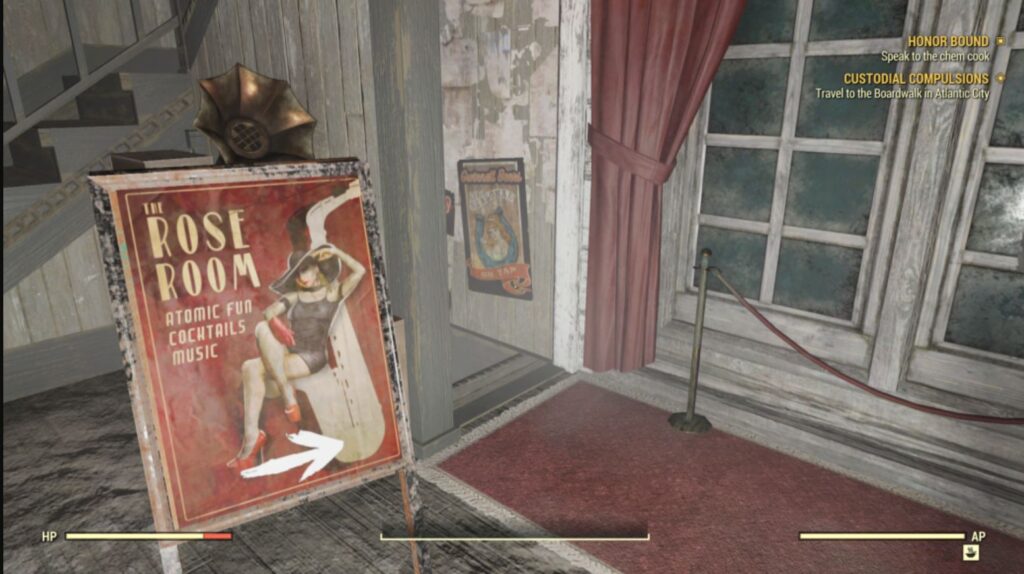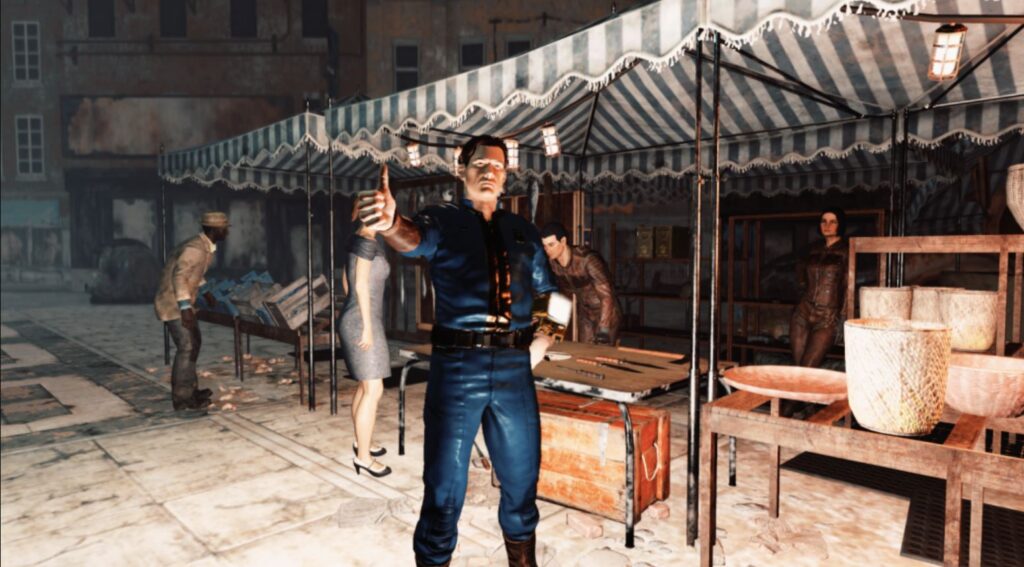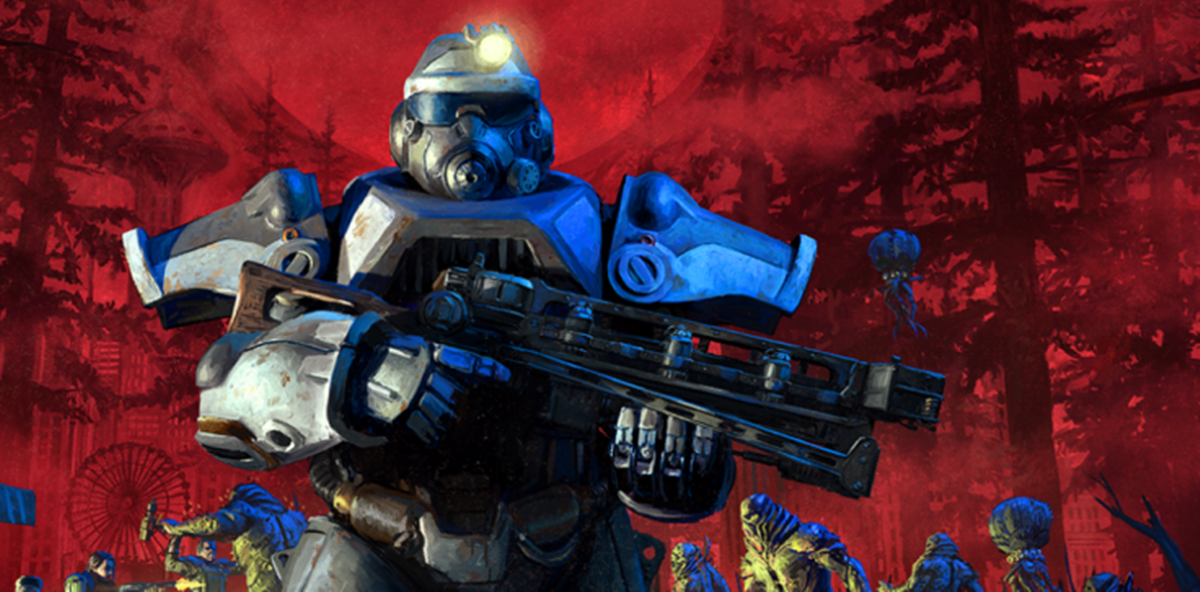As one of the new kids on the block, I’ve submitted my paperwork for “resident Fallout nerd.” Multiple playthroughs of Fallout 3, Fallout: New Vegas, and Fallout 4? Check, check, and check. A sponge for all available lore videos and podcasts? Yes indeed. Reservations for my local Vault-Tec vault where I’m assured I definitely will not be the subject of some horrifying social experiment? Documents are already on the way. I even showed that I was the bigger person and forgave Fallout 76 for its notorious launch. It certainly isn’t the best Fallout game, but it’s got something there.
Read More: Inazuma Eleven Victory Road Beta Review
As the franchise begins to make the leap from game to Amazon Prime show, all eyes are on the post-apocalyptic RPG series from new Vault Dwellers to seasoned Raiders. Last week, Bethesda released an appetizer to whet people’s whistles in the form of Fallout 76’s newest expansion, Atlantic City: America’s Playground. While the effort is commendable from the part of the family that the least is expected from, it doesn’t quite cut it when it comes to the series’ reputation.
Fallout 76 America’s Playground Review
Messing with the Family
It’s not necessary to bring up the old wounds 76 has inflicted upon itself and others – it was a shoddy, bug-riddled mess lacking some of the critical elements that make the Fallout experience. However, in the five-and-a-half years since its launch, the multiplayer black sheep of the family has clawed and scratched its way into a decent little game.
The lack of NPCs was rectified, sending Seventy-Sixers on quests featuring franchise stalwarts such as the Brotherhood of Steel. Bugs were squashed taking the level down from “overwhelming” to “fairly tolerable, what do you expect, it’s a Bethesda game.” And, in an unexpected event, 76 currently has more than double the daily player count on Steam than beloved jewel of Bethesda, Starfield. It has earned its right to stand among the rest of the Fallout series.
Atlantic City: America’s Playground is an impressive outing from the Little Fallout That Could, but standing next to other offerings from the series, doesn’t cut the mustard. The main quest starts when the Vault Dweller notices a poster for something brand new to Appalachia – a nightclub. 76 heads to the Rose Room, just east of Morgantown to see what this “nightclub” is all about.

This is where we see the first flash of the glimmer that America’s Playground had the potential to be, as the characters are well-crafted. Anyone who’s sat at their family’s Thanksgiving table and thought that maybe they’re adopted because the rest of the family is completely insane will immediately understand the stance that Vin Russo takes regarding his showbiz mother, Evelyn Russo, his sister Abbie, who struggles with a severe chem addiction, and his caring but foggy-minded father Antonio.
Read More: Manor Lords Preview: Release Date, Platforms, Features & More
Evelyn comes across as a cartoonish parody of a post-apocalyptic Debbie Reynolds, but anyone who’s had the tragic displeasure of dealing with addiction and withdrawal or keeping an elderly relative with dementia or Alzheimer’s disease in a moment of lucidity will be touched by some of the story beats between the Vault Dweller and the various members of the Russo family. In all honesty, the characters and the story they create are good. Quite good, in fact.
But this is Fallout, and franchise fans are used to dining on great stories. Good may work in other franchises, but it just doesn’t here.
All The World’s A Stage
***THERE MAY BE MINOR SPOILERS FROM HERE ON OUT… YOU HAVE BEEN WARNED.***
The addition suffers when the action moves from Appalachia to Atlantic City. The quest reuses two of the same locations as the previously-released Atlantic City Expeditions, those being the Casino Quarter and the Boardwalk, and adds in a third district, the Flooded City Center, which serves as the city’s centre, but flooded. See what they did there? Unfortunately, every area gives off the vibe of well-created stage dressing.
Like the shows on the Boardwalk, everything feels empty, waiting for actors to fill them and instead receiving generic extras. Like an elaborate escape room, every set, as it were, serves exactly one purpose, and once that purpose is served, there’s not much reason to go back. Background characters are simply Mobster, Citizen, Showman, etc. and don’t offer much. There’s very little chatter of importance, no side quests to pick up, and when you finally get to a casino, there’s dice, roulette, and slots. It’s a church of RNGesus.
Side note: How are you going to build a casino in a post-New Vegas world and not have blackjack? I need to speak to a pit boss.
Quests turn into a connect-the-dots scavenger hunt: find this, get that, shoot them. The Showman’s Pier sequence was unique, and if you have a phobia of clowns, mildly traumatic, but beyond that, it was simply fine. But again, fine isn’t fine in Fallout. And when the traditional Bethesda jank hits (and it will hit) it becomes a battle of will; yes, the characters were mostly well-crafted, but does the story hold enough to warrant the server-hopping or replaying necessary to overcome that jank? In my playthrough, a stray bullet hit Vin, causing him to go aggro against an Overgrown, but when the Overgrown was not in Vin’s line of sight, he just sat there, refusing to talk to me. Server-hopping did fix this; however, those less enamored with the quest may just drop it when jank rears its ugly head.
A Fine Add-On
To be fair, this is a free add-on, so it’s not like players will be concerned with if it’s worth their money. A few side quests are included, though aside from an unexpected twist in the late-stage still are just basically chase-quests. And, for those playing the long game or have been with the game for a while now, the quest loot isn’t all that bad. Like everything else, it hits with a resounding “fine.
Read More: Minami Lane Achievements Guide
The addition also changes the well-known Scoreboard to a new “Seasons” ticket system. Whereas the old system led players on a pathway to loot somewhat like a board game, Seasons works more like a Chuck E. Cheese ticket booth. Every time a player ranks up, they will get an allotment of tickets to either spend on that page or bank for bigger prizes. It’s not an earth-shattering change, and allows for more focused loot pathways.

Atlantic City: America’s Playground is serviceable for those who already play Fallout 76 and are hungry for any new Fallout content, but it won’t be winning any awards, and it certainly won’t be enticing new players. It’s the definition of an average effort. It adds in content and is satisfied with its doings. Given that it’s from the black sheep of the Fallout franchise, the effort is admirable. However, next to the masterpieces that have hung through the halls of Fallout since the very first one, it’s nothing more than a crayon drawing.




